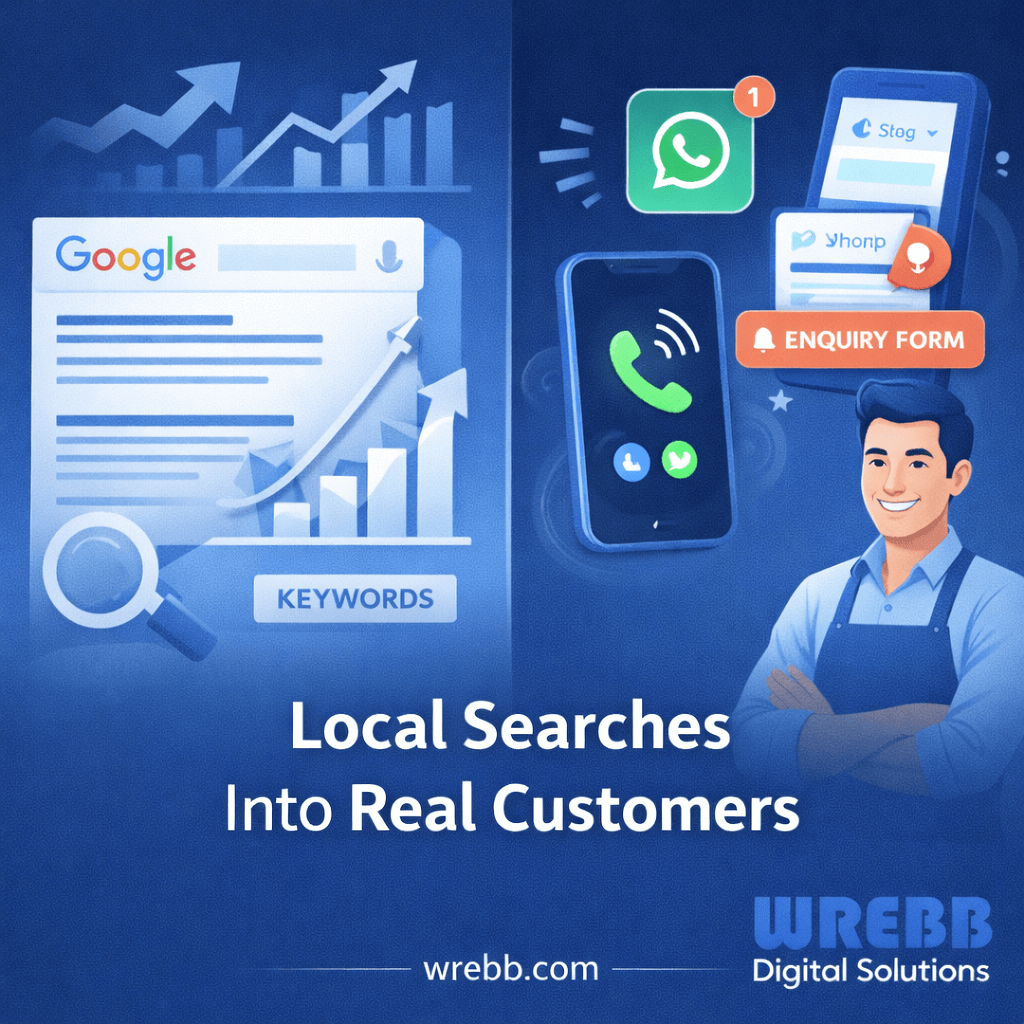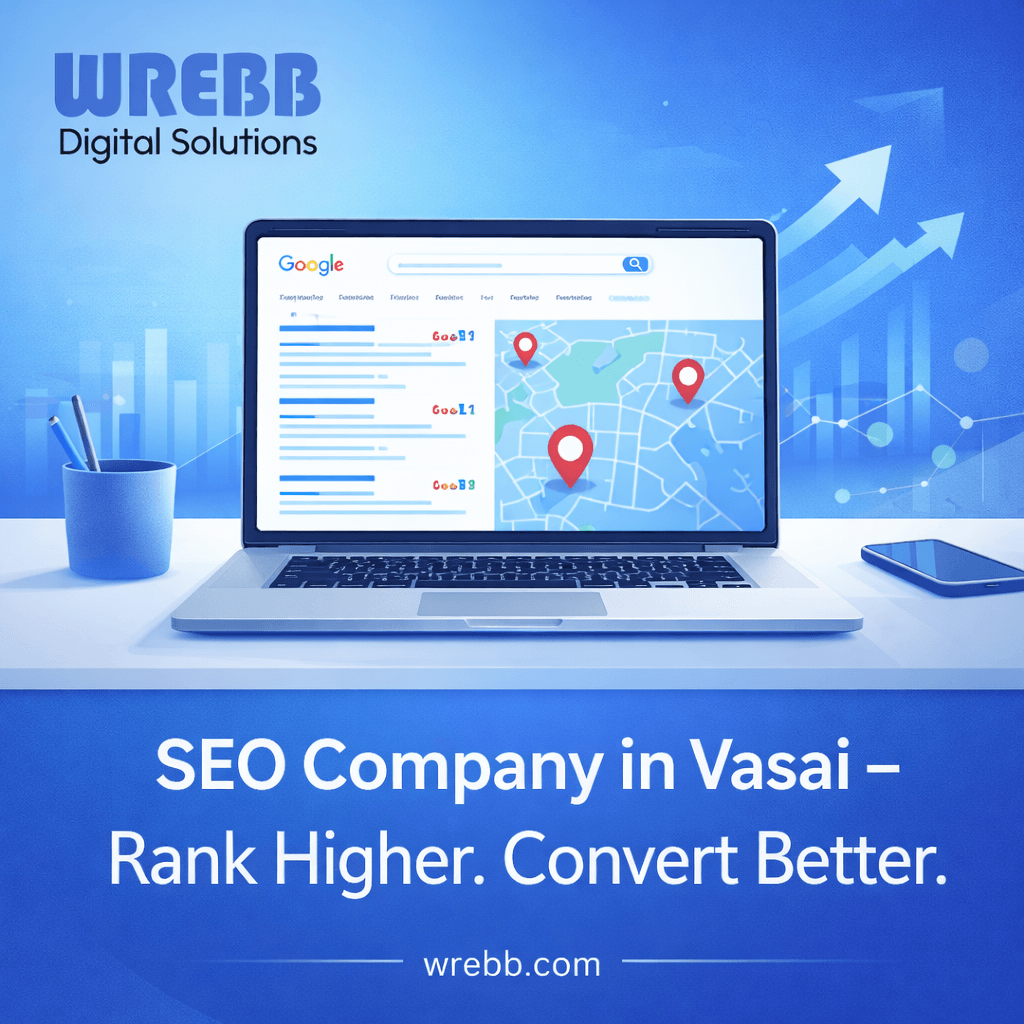Imagine a potential customer searches for a product or service you offer, but your website doesn’t appear in the results. Meanwhile, your competitors are getting all the clicks, leads, and sales—simply because they’ve invested in SEO services for small business.
Table of Contents
ToggleThe truth is, visibility is everything in the digital age. Without a strong SEO strategy, your small business risks getting lost in the vast online marketplace. Small business SEO isn’t just about ranking higher on Google—it’s about attracting the right customers, building credibility, and growing sustainably without overspending on ads.
Whether you run a local shop, an e-commerce store, or a service-based business, SEO can be the difference between being discovered or staying invisible. In this guide, we’ll break down the essentials of SEO for small businesses, the key strategies that work, and how to implement them effectively—so you can compete with bigger brands and win.
Why SEO Matters for Small Businesses
SEO is one of the most cost-effective ways to attract potential customers. Unlike paid ads, which stop generating traffic once you halt spending, SEO builds long-term visibility. Here’s why small business SEO is crucial:
-
Increased Organic Traffic – Ranking higher on Google means more clicks without paying for ads.
-
Better Credibility – Users trust websites that appear on the first page of search results.
-
Higher ROI – SEO delivers sustainable results at a fraction of the cost of traditional marketing.
-
Local Visibility – For brick-and-mortar businesses, local SEO ensures you appear in “near me” searches.
Without SEO, your website may remain buried under competitors, making it difficult for customers to find you.
Key SEO Strategies for Small Businesses
Implementing effective SEO services for small business requires a strategic approach. Below are the most impactful tactics to boost your rankings:
1. Keyword Research & Optimization
Your SEO strategy starts with identifying the right keywords—the terms your potential customers are searching for. Use tools like Google Keyword Planner, Ahrefs, or SEMrush to find relevant, low-competition keywords.
Once you have your keywords:
-
Incorporate them naturally into your website content, headings, and meta descriptions.
-
Avoid keyword stuffing—Google penalizes unnatural usage.
-
Focus on long-tail keywords (e.g., “best coffee shop in Austin” instead of just “coffee shop”).
2. On-Page SEO
On-page SEO ensures your website is structured in a way that search engines understand. Key elements include:
-
Title Tags & Meta Descriptions – Write compelling, keyword-rich titles under 60 characters.
-
Header Tags (H1, H2, H3) – Organize content with clear headings.
-
Internal Linking – Link to other relevant pages on your site to improve navigation and SEO.
-
Image Optimization – Use descriptive file names and alt text for images.
3. Local SEO for Small Businesses
If you serve a local audience, optimizing for local searches is a must. Here’s how:
-
Google My Business (GMB) Listing – Claim and optimize your GMB profile with accurate details.
-
Local Citations – Ensure your business name, address, and phone number (NAP) are consistent across directories.
-
Customer Reviews – Encourage satisfied customers to leave positive reviews on Google and Yelp.
4. Technical SEO
A technically sound website ensures search engines can crawl and index your pages efficiently. Key aspects include:
-
Mobile Optimization – Over 60% of searches come from mobile devices.
-
Page Speed – Slow-loading sites hurt rankings; use tools like Google PageSpeed Insights.
-
Secure Website (HTTPS) – SSL certificates improve security and rankings.
-
Structured Data Markup – Helps search engines understand your content better.
5. Content Marketing & Blogging
High-quality content establishes authority and attracts backlinks. A well-maintained blog can:
-
Answer common customer questions.
-
Target long-tail keywords.
-
Keep your website fresh with regular updates.
Focus on creating helpful, informative content rather than overly promotional pieces.
Choosing the Right SEO Services for Small Business
With countless agencies offering small business SEO, selecting the right partner is critical. Here’s what to look for:
Transparent Reporting – You should receive regular updates on rankings, traffic, and progress.
White-Hat Techniques – Avoid agencies that promise instant results (black-hat SEO can get you penalized).
Custom Strategies – A one-size-fits-all approach doesn’t work; your business needs tailored solutions.
Proven Track Record – Check case studies and client testimonials.
DIY vs. Hiring an SEO Agency
While some businesses handle SEO in-house, hiring professionals can save time and deliver better results. Consider:
-
DIY SEO – Good for basics, but requires ongoing learning and effort.
-
Hiring an Agency – Best for long-term growth, especially if you lack expertise.
Final Thoughts
Investing in SEO services for small business is a smart move to boost visibility, attract customers, and grow sustainably. Whether you handle it yourself or hire experts, a strong SEO strategy will pay off in the long run.
Need expert help? Wrebb specializes in tailored small business SEO strategies to help you dominate search rankings. Get in touch today to learn more!
FAQs About Small Business SEO
1. How long does it take to see SEO results?
SEO is a long-term strategy. Typically, you may start seeing improvements in 3-6 months, but significant results often take 6-12 months.
2. How much should a small business spend on SEO?
Costs vary based on competition and scope. Small businesses can expect to invest anywhere from 500to500to5,000 per month for professional services.
3. Can I do SEO myself?
Yes, basic SEO (like keyword optimization and blogging) can be done in-house. However, technical and advanced SEO may require professional help.
4. What’s the difference between local SEO and regular SEO?
Local SEO targets geographically specific searches (e.g., “plumber near me”), while general SEO focuses on broader rankings.
5. Are backlinks important for small business SEO?
Yes, high-quality backlinks from authoritative sites improve domain authority and rankings. However, focus on natural link-building rather than buying links.
By implementing these strategies, your small business can thrive in the competitive digital landscape. Start optimizing today!




